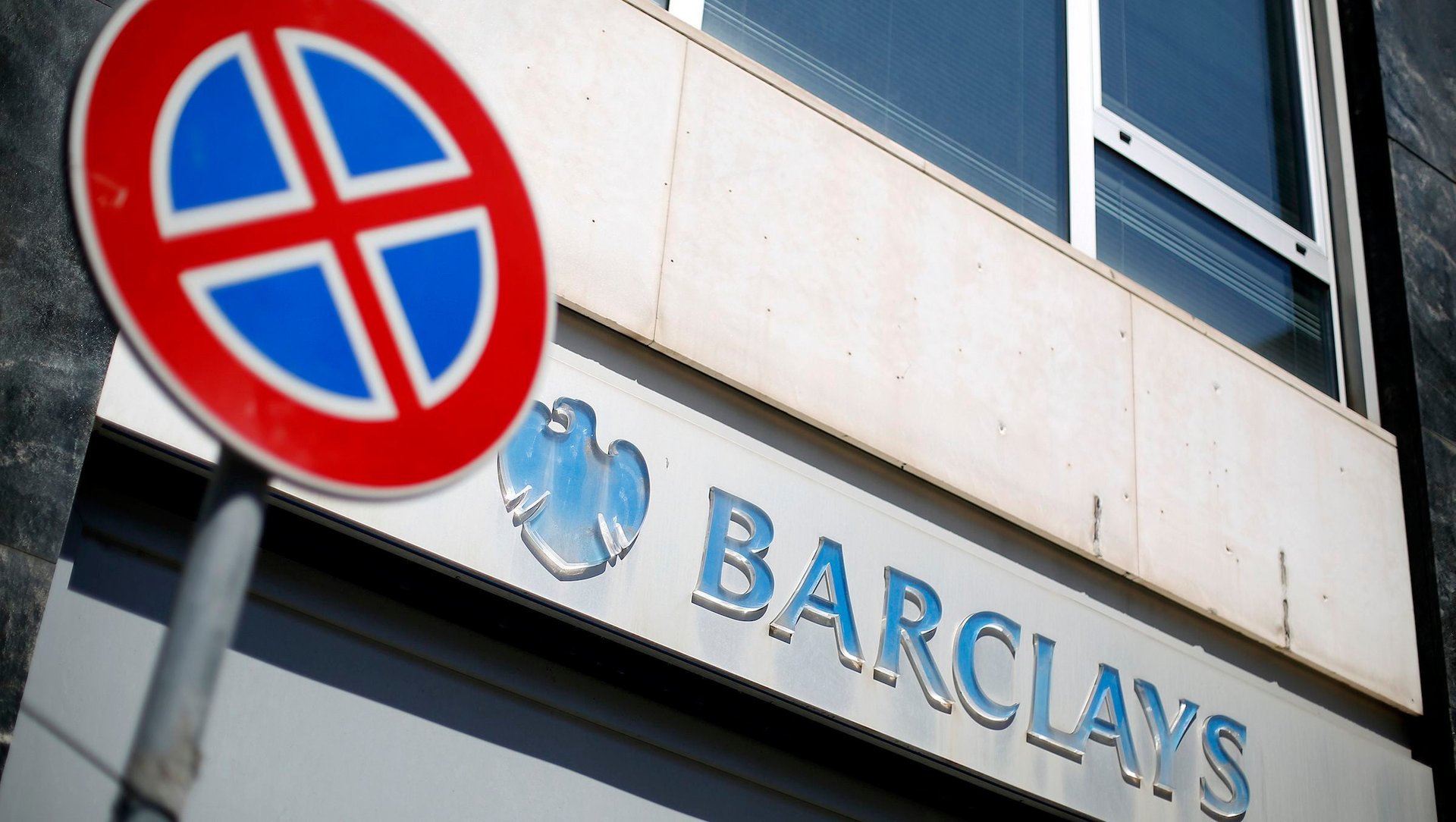Barclays says that New York’s top prosecutor has no business wading around its dark pools
New York Attorney General Eric Schneiderman isn’t the boss of Barclays’ dark pool (or its lifeguard, for that matter). That’s the position the UK bank has put forth in its response today to a lawsuit filed in June by the top New York prosecutor: ”[W]e do not believe that this suit is justified, and we have a duty to our shareholders, clients and staff to defend our position,” said a spokeswoman in an emailed statement.


New York Attorney General Eric Schneiderman isn’t the boss of Barclays’ dark pool (or its lifeguard, for that matter). That’s the position the UK bank has put forth in its response today to a lawsuit filed in June by the top New York prosecutor: ”[W]e do not believe that this suit is justified, and we have a duty to our shareholders, clients and staff to defend our position,” said a spokeswoman in an emailed statement.
Schneiderman has alleged that Barclays misled clients of LX, its secretive “dark pool” trading platform–in which buy and sell stock orders are placed anonymously outside the scope of traditional exchanges like the New York Stock Exchange. The prosecutor argues that Barclays encouraged high-frequency traders using lightening-fast computers to prey upon the bank’s other trading clients: “Barclays demonstrated a disturbing disregard for its investors in a systematic pattern of fraud and deceit,” Schneiderman said in a statement in June. “Barclays grew its dark pool by telling investors they were diving into safe waters. According to the lawsuit, Barclays’ dark pool was full of predators–there at Barclays’ invitation.”
But Barclays’ motion to dismiss the lawsuit, filed today in New York state’s supreme court, challenges Schneiderman’s authority to bring the case in the first place. This all hinges on the US law known as the Martin Act, which confers a broad range of powers to New York’s attorney general. Employed most notably by hard-chargers such as New York’s former attorney general Eliot Spitzer, the Martin Act is a powerful legal tool dating back to 1921 that has been used to prosecute securities fraud. Schneiderman is using the law to underpin his claims against Barclays’ secretive trading venues.
Barclays counters that the Martin Act applies specifically to the sale of securities, and is not relevant to the question of whether Barclays misled investors into thinking that its dark pool was a safe trading venue. Essentially, Barclays is arguing that Schneiderman’s complaints about Barclays’ dark pool are outside the scope of the Martin Act because they relate to the marketing of the platform, rather than specific problems with its handling of trades for clients. Here’s what Barclays says in its motion:
First, in seeking to extend its regulatory authority to trading platforms, the NYAG ignores that the plain text of the Martin Act—on which the NYAG’s claims are predicated—is limited to actions for fraud in the purchase or sale of “securities,” and does not extend to all actions related to finance. Here, the allegations solely concern the functioning of LX as an alternative trading platform, and do not identify any misstatements concerning any “security.”
Put slightly more simply, by finance attorney Michael Bachner at Bachner & Associates, who is not involved in the case: ”[Barclays] is arguing that if there were any misstatements, they were not related to an investment decision but more about the opinion of the trading platform, which may fall outside of the Martin Act.” Bachner says the argument may have some merit. “I think that the attorney general is going to have to roll up its sleeves on this one case,” he added.
For its part, the attorney general’s office shrugged off Barclays’ motion in a statement: ”We are confident that a judge will reject this motion and allow us to prove these disturbing allegations in court.”
Regardless of which side is right, none of this leaves investors with a warm and fuzzy feeling about LX. In fact, trading activity in the dark pool already has plunged by 66%, based on data released by Financial Industry Regulatory Authority, which suggests that even if they once considered the fund “safe waters,” that’s no longer the case.